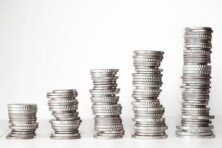Beijing has ordered Chinese investors in foreign mining projects to report on their proven and prospective reserves of crucial minerals.

The mentioned decision by the Asian country’s authorities is a kind of measure in preparation for the potential increased competition with the United States after the inauguration of Donald Trump, which will take place this month. It is worth noting that over the past few years, relations between Beijing and Washington have already been on a trajectory of consistent deterioration, which carries the risk that at some point a kind of point of no return will be crossed, beyond which a fundamental degradation of the experience of cooperation between the two capitals will begin, meaning in a practical sense an escalation of tension between the world’s largest economies. China and the United States have already imposed mutual restrictive measures. The US has restricted the export of advanced chips and equipment for the production of microcircuits of the appropriate category to an Asian country. As part of the retaliatory measures, Beijing has banned shipments of several minerals to the United States.
This week, the Ministry of Commerce of China expanded the list of mineral resources that local mining companies operating abroad must declare. In this case, in particular, information is requested on rare earth elements such as titanium ore, zircon, and tantalum ore.
Currently, Chinese companies operating abroad must declare more than 40 types of mineral products. It is worth noting separately that under the previous configuration of the relevant regulatory practice, the mentioned norm concerned 32 mineral products. In this case, there is increased control over the foreign activities of Chinese companies amid rising geopolitical tensions. One of the additional items is antimony, which Beijing stopped exporting in October.
The list of critical nonmetallic minerals includes new crystalline graphite, amorphous graphite, boron, and fluorite.
The new measures are also related to the revision of the Statistical Rules on Foreign Direct Investment, issued by the ministry, the National Bureau of Statistics, and the State Administration of Foreign Exchange.
Minerals are what can be described as the large-scale advantages of the Chinese economic system, which is the second-largest in the world. The Asian country has rich deposits of minerals such as rare earth metals, which are critically needed for the production of smartphones, electric vehicles, and defense systems. At the same time, China relies heavily on the import of metals such as lithium, which is widely used in batteries for electric cars.
Currently, the Asian country is the world’s largest importer of copper, aluminum, nickel, and the above-mentioned lithium. China is actively investing in the mining industry in the countries that have joined the Belt and Road Initiative. In this case, states such as Zambia, Peru, the Democratic Republic of the Congo, Chile, and Indonesia are meant.
At the same time, at the current week, the media quoted the China Geological Survey as saying that Beijing nowadays has 16.5% of the world’s lithium reserves, second only to Chile in this indicator. It was noted that the mentioned reserves of China are the result of the discovery of fresh deposits and new techniques that allow extracting metal from minerals.
Currently, Beijing is actively striving for self-sufficiency, including in the context of technological development and within the economic dimension of the existence of an Asian country. At the same time, Washington is showing concern about China’s dominance in the production of critical minerals. In this context, it is worth noting that the United States remains heavily dependent on the Asian country for imports of major minerals used in the manufacturing of semiconductors and advanced weaponry.
Christopher Tang, a professor at the University of California, Los Angeles’ Anderson School of Management, said China’s control of critical materials is intended to create a potential negotiating tool with Donald Trump, who is likely to continue to expand Washington’s restrictive measures against Beijing and will increase tariffs on goods shipped from an Asian country.
Rob Wittman, a prominent member of the Critical Minerals Policy Working Group of the US House of Representatives, said China is actively working to undermine efforts by the United States and its allies to develop alternative supply chains by securing global mining projects.
The US Geological Survey said last year the Asian country supplies more than 50% of the United States needs for 24 critical minerals, including more than 90% demand for rare earth elements.









